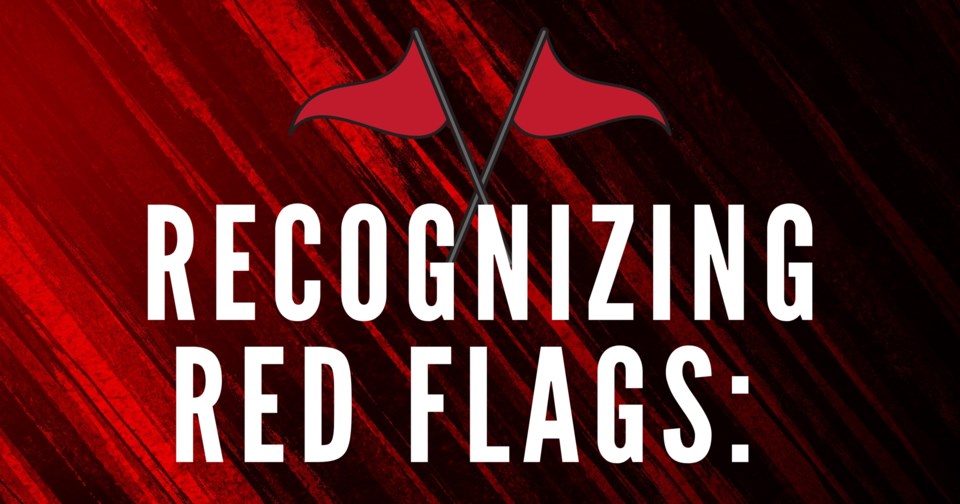DARLINGS, in the thrilling journey of love and companionship; it's easy to get swept away by emotions, overlooking warning signs that could potentially lead to turbulence in the relationship. Red flags are those subtle or glaring indicators that something might not be quite right in a relationship, signalling the need for attention and possibly action.
Recognising and addressing these red flags early on can be crucial in maintaining a healthy and fulfilling relationship. Here’s a guide to identifying and handling them with care:
IDENTIFYING RED FLAGS:
LACK OF COMMUNICATION: Communication is the cornerstone of a healthy relationship. If there’s a noticeable reluctance or difficulty in discussing feelings, needs, or conflicts, it could indicate underlying issues.
CONTROLLING BEHAVIOUR: A partner, who consistently dictates your actions, isolates you from loved ones, or exhibits possessive behaviour might be displaying signs of control, which can escalate into emotional or physical abuse.
UNRESOLVED ANGER OR AGGRESSION: Frequent outbursts of anger, hostility, or violence, whether directed at you or others, are serious red flags that shouldn’t be ignored.
LACK OF RESPECT: Disrespectful behaviour, such as belittling, insulting, or demeaning remarks, undermines the foundation of mutual respect necessary for a healthy relationship.
DISHONESTY OR DECEPTION: Trust is fundamental in any relationship. Patterns of dishonesty, lying, or keeping secrets erode trust and can lead to significant issues down the line. Healthy relationships require compromise and mutual understanding. If one partner consistently refuses to compromise or consider the other’s needs, it can lead to resentment and imbalance.
FINANCIAL IRRESPONSIBILITY: Financial disagreements are common in relationships, but reckless spending, secret debts, or refusal to contribute fairly can strain the partnership and lead to serious conflicts. Respecting each other’s boundaries is crucial. If a partner consistently disregards your boundaries, whether physical, emotional, or personal, it can lead to feelings of violation and discomfort.
HANDLING RED FLAGS:
Recognising red flags is the first step. Don’t brush them off or make excuses. Take them seriously and trust your instincts. Address concerns calmly and openly with your partner. Express your feelings and observations without blame or accusation, and encourage them to do the same.
Communicate your boundaries and expectations within the relationship. Respect each other’s boundaries and be willing to compromise when necessary. Don’t hesitate to seek support from trusted friends, family members, or a therapist. Discussing your concerns with a neutral party can provide valuable perspective.
If red flags persist despite attempts to address them, consider whether the relationship is truly healthy for you. It may be necessary to seek professional help or even end the relationship if it becomes toxic or harmful. Prioritise self-care and emotional well-being. Take time for yourself to reflect, recharge, and engage in activities that bring you joy and fulfilment. Recognise when a relationship is no longer serving your best interests. Trust your intuition and have the courage to walk away if necessary, even if it’s difficult.
Every relationship has its challenges, but certain behaviours should never be ignored. Recognising and addressing red flags early on can help prevent more significant problems in the future.



